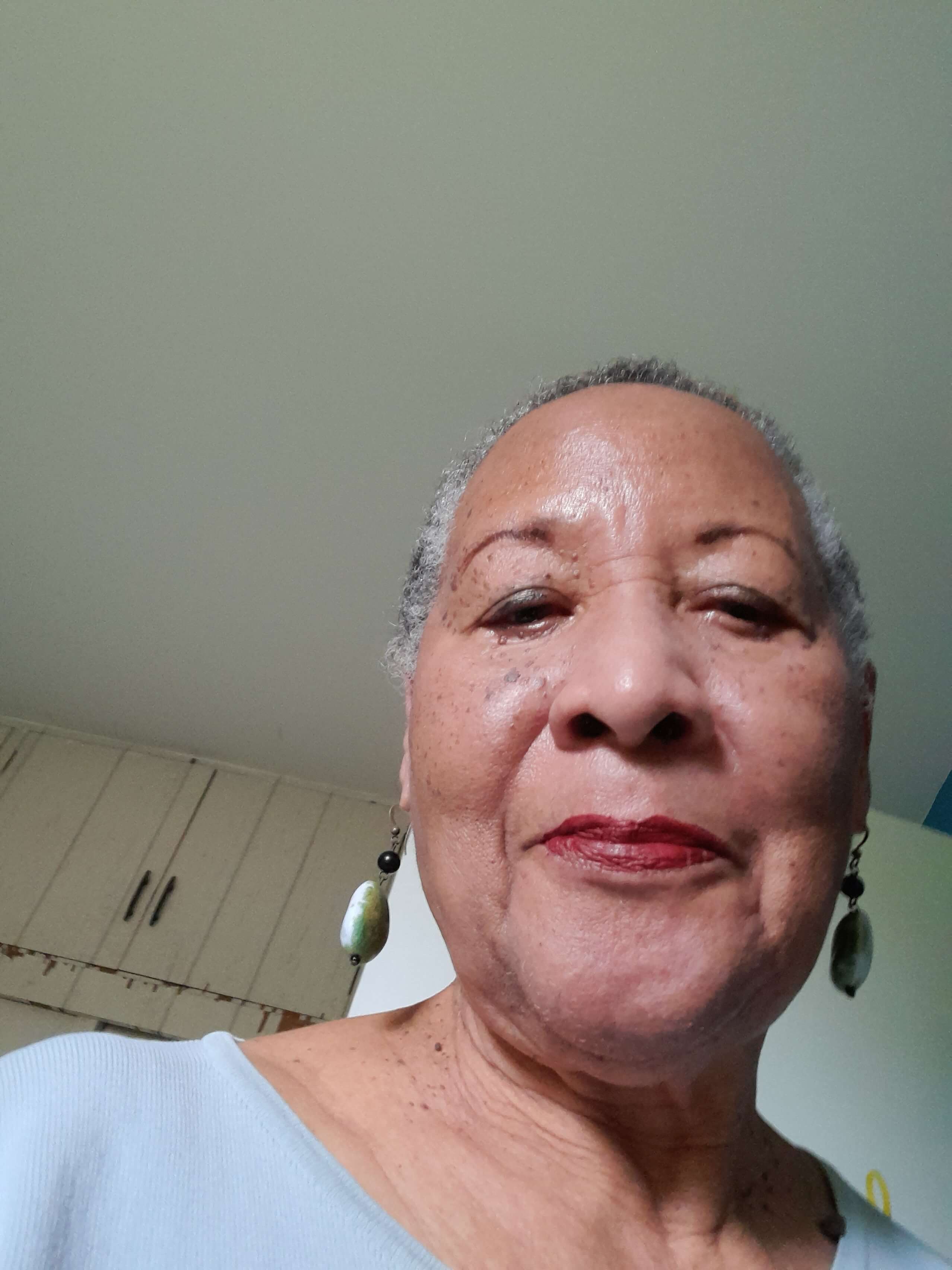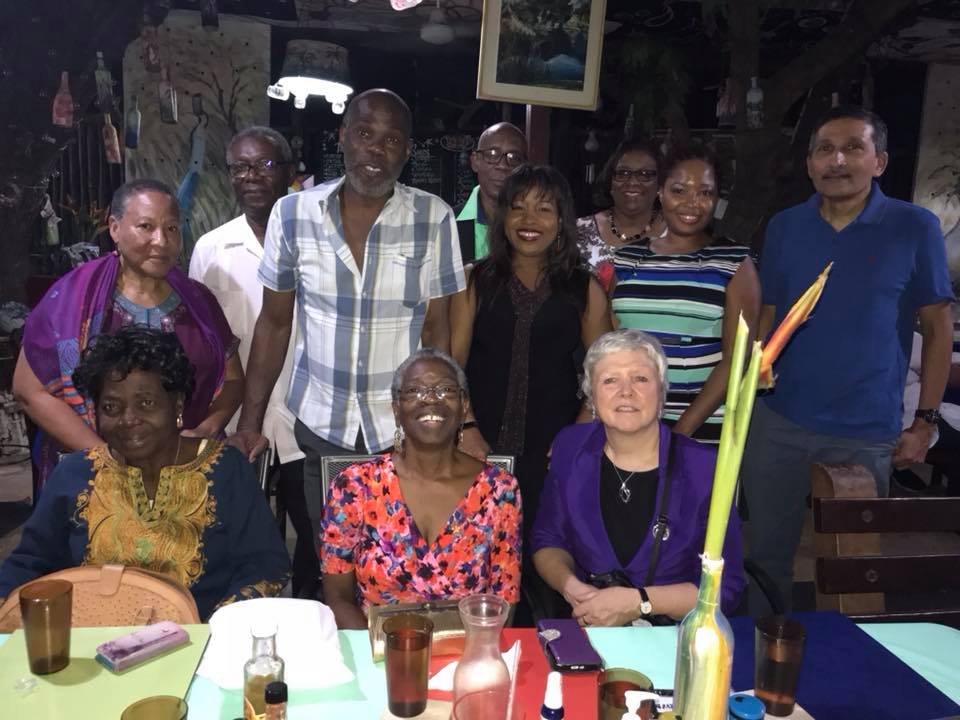ROACHE, Dr Sonia
Global Five Star Doctor 2010 - Trinidad and Tobago

We realised recently that WONCA’s website contained no proper profile of Dr Sonia Roache — who was named WONCA’s Global Five Star Doctor in 2010 and became a WONCA Fellow in 2018, the first Caribbean family doctor to receive either honour. Now in her mid-80s, she formally retired from clinical practice in Trinidad and Tobago in November 2024, but remains deeply active as Executive Director of the Caribbean College of Family Physicians (CCFP), a role she has held since 2000. This interview was a chance to catch up with her—fifteen years on from her global award—and reflect on a remarkable career spanning public service, medical education, regional health leadership, and grassroots care.
You were awarded WONCA’s Global Five Star Doctor Award in 2010, and later became a Fellow of WONCA in 2018—what did these recognitions mean to you personally and professionally?
Personally I was humbled but thrilled at the same time, so grateful to those in WONCA that believed in me.
I remembered meeting Dr Charles Boelen in Trinidad at the start of our health reform activities there and pleading with him the cause of Family Medicine vs Public Health as defined by WHO and feeling vindicated in a way, although he must have been on our side all the time.
Significantly I was recommended for the Five-Star Award by a colleague in Jamaica although I was working in Trinidad and this emphasized for me the enormous hurdles that I still had to overcome, as Trinidad is a complicated space within another complicated space called the Caribbean. This was why I was drawn to the committee that I was called to serve within WONCA called “Organizational Equity”.
Professionally, it made no difference because I worked in the private sector and continued to be viewed as another GP, distinguished yes, but still the same. For my GP peers it gave them a boost especially from the female standpoint.
To me the greatest boost was to CCFP, and to the Caribbean. We have a Jamaican saying “We small. But we Talawa.”
You’ve had a long and distinguished career in Trinidad & Tobago and across the Caribbean. Could you reflect on some of the milestones that have meant the most to you?
It is difficult to choose.
Perhaps it is my interface with my patients, their families and our community.
Strangely I am touched by the many people—even third generation—that still recall my radio programme. They claim it made them think differently about family medicine, and their relationship with their bodies, mental health and their doctors.
I am happy because my patients and their families have become my friends and for the most part I have served them to the best of my ability, discharging my obligations to them.
Introducing and conceptualizing Health & Wellness vs Dis-Ease became our mantra and this has caught on.
Regionally, due to my relationship with WONCA, I have helped to increase and strengthen the ties between CCFP and the wider world including PAHO.
I linked CCFP to CARICOM—the Caribbean Community—by getting us accepted as an Observer within our COHSOD, the regional group of Ministers of Health.
I have helped to make Family Medicine an accepted specialty in our jurisdiction and built morale among my colleagues in so doing. Choosing Family Medicine as a career option has now become more commonplace.
Mentoring and encouraging behind the scenes is one of the things I treasure.
Helping to deliver “The Patients’ Bill of Rights” has also been a milestone, as well as helping to reduce the stigma of HIV-AIDS especially in the workplace.
As someone deeply involved in building family medicine in the Caribbean, what progress have you seen in the region—and what challenges remain?
Our Family Medicine postgraduate programme is fully operational and accepted, offered by our internationally accredited regional university, The UWI (University of the West Indies). This produces qualified family doctors who then have the opportunity to be placed in decision-making and administrative positions throughout the region and also in academia. They have also been accepted in other jurisdictions.
Many challenges remain because the role of the family doctor is still seen as inferior and taken for granted in comparison to other specialties, hospital placings, and public health. The struggle continues to build morale and recognition as well as financial incentives. Apathy and lack of self-image amongst GPs remain one of the strongest impediments to progress.
Can you tell us about your work with the Caribbean College of Family Physicians and why that work continues to be important?
This started when I became a GP in 1964 unwillingly but realizing that my training as a medical doctor did not prepare me for General (Family) Practice. Simultaneously, a group of us decided to form GP Associations in various territories for learning and mutual support. This coalesced to become the CCFP under the leadership of a visionary classmate Dr Winsome Segree based in UWI, Jamaica. I followed in her footsteps because I felt compelled to keep the dream alive, was voted CCFP Regional President in 1992, and after granted Fellowship in CCFP, realizing that if we wanted things to happen, only we had to make it happen ourselves, despite apathy and non-recognition. Dr Segree introduced me to WONCA and there I learned the strategies, following the history of other Colleges especially Canada.
I tried to keep CCFP alive behind the scenes and sometimes openly, as we built the foundations. We have been blessed with sterling members whom I tried to keep together across the region as we continue to fight. I am a background person so when President Kamala Dickson asked me to take the role of Executive Director in 2000, this gave me authenticity. My strengths are networking and record keeping, keeping the membership connected, making links with the right connections, keeping the name of CCFP in the forefront while encouraging from behind. We (CCFP) have been blessed with fantastic leaders and we have accomplished much with less, because of this.
What keeps you inspired today, in your life and work?
Faith in God—I am a Christian (Anglican persuasion). Without this I would have floundered.
Secondarily, love and prayers from my colleagues and patients and in particular, my family—they enfold, renew and preserve me.
Finally, what message would you like to share with the next generation of family doctors—especially those just starting out in the Caribbean?
A foundation second to none has been built for you, the next generation of family doctors—at academic and professional level.
You are blessed and supported as long as you do your part in accepting and building on this base.
Already, there is that assumption that your country needs you to build a healthy society and is looking to you to deliver good, reliable, efficient and caring healthcare from cradle to grave, and it is beginning to show that those that aspire to the tenets that CCFP espouses are making the difference. So espousing continuing education and professional development for life as well as caring and devotion with integrity will pay dividends that you can scarcely imagine. The discipline of family medicine is a treasured one and is alive and well.

Dr Sonia Roache at a CCFP meeting in Jamaica